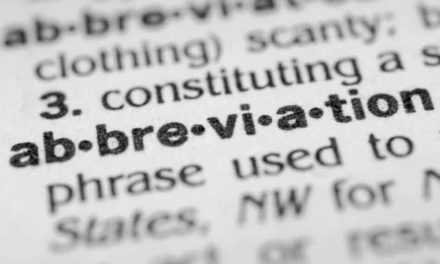Introduction
Academic writing is a critical skill for students, researchers, and professionals. To produce high-quality research papers, essays, and dissertations, writers must follow specific writing conventions, citation styles, and formatting guidelines. One of the most widely used resources for academic writing is the Online Writing Lab (OWL) at Purdue University. The Purdue OWL provides comprehensive guidance on writing mechanics, citation styles, research strategies, and professional writing.
This article explores the significance of OWL resources for academic writers, detailing its key features, benefits, and how to use it effectively to improve writing skills.
What is Purdue OWL?
The Purdue Online Writing Lab (OWL) is a free online resource developed by Purdue University. It serves as a valuable tool for students, researchers, and educators by offering guidance on various aspects of writing, including:
- Academic writing principles
- Citation and referencing (APA, MLA, Chicago, etc.)
- Grammar and style guidelines
- Research techniques
- Professional writing skills
Since its inception, Purdue OWL has become a trusted reference for writers worldwide, providing well-organized, accessible information for all levels of academic writing.
Key Features of OWL Resources
OWL offers a vast array of writing resources, categorized into different sections to assist academic writers at every stage of their writing process. Some of its most significant resources include:
1. General Writing Resources
The Purdue OWL provides foundational knowledge on academic writing, including:
- Writing process (prewriting, drafting, revising, and editing)
- Common writing assignments (essays, literature reviews, reports, etc.)
- Sentence structure and paragraph development
- Tone, clarity, and conciseness in writing
2. Grammar and Mechanics
For non-native English speakers and students looking to improve their grammatical accuracy, Purdue OWL offers detailed guides on:
- Subject-verb agreement
- Punctuation and sentence structure
- Common grammar mistakes
- Active vs. passive voice usage
3. Citation and Formatting Guidelines
One of the most frequently used sections of OWL is its citation and formatting guide. It provides detailed instructions for the following citation styles:
- APA (American Psychological Association) – Used in social sciences, psychology, and education.
- MLA (Modern Language Association) – Common in humanities, literature, and arts.
- Chicago/Turabian – Used in history, business, and fine arts.
- IEEE (Institute of Electrical and Electronics Engineers) – Preferred in engineering and technical writing.
Each citation guide includes:
- In-text citation examples
- Reference list formatting
- Sample papers
- Guidance on citing digital sources (e.g., websites, e-books, and online journals)
4. Research and Writing Strategies
Conducting effective research is a crucial part of academic writing. OWL provides comprehensive guidance on:
- How to develop a research question
- Evaluating sources for credibility
- Organizing and structuring research papers
- Avoiding plagiarism
5. Thesis and Dissertation Writing
For graduate students, OWL offers specialized resources on crafting a thesis or dissertation, including:
- Writing a strong research proposal
- Structuring a thesis or dissertation
- Conducting a literature review
- Formatting long-form academic papers
6. Professional and Business Writing
Beyond academic writing, Purdue OWL also offers resources on professional writing, including:
- Resume and cover letter writing
- Business correspondence (emails, reports, memos)
- Grant writing
- Technical writing and documentation
Benefits of Using OWL for Academic Writing
The Purdue OWL is widely regarded as one of the best free academic writing resources due to its numerous benefits:
1. Free and Accessible
Unlike many academic writing guides that require subscriptions, Purdue OWL is free and available to anyone with internet access.
2. Comprehensive and Up-to-Date Information
The OWL is regularly updated to reflect the latest citation styles and writing conventions, ensuring that users get the most accurate guidance.
3. User-Friendly Interface
The website is well-organized, making it easy to navigate through different topics and find relevant information quickly.
4. Applicable to All Levels of Writers
Whether a high school student, undergraduate, graduate student, or professional researcher, Purdue OWL provides resources that cater to various writing proficiency levels.
5. Enhances Research Integrity and Academic Honesty
By providing guidelines on avoiding plagiarism and correctly citing sources, Purdue OWL helps writers maintain academic integrity and avoid unintentional violations.
How to Use Purdue OWL Effectively
To get the most out of Purdue OWL, academic writers should follow these strategies:
1. Identify Specific Writing Needs
Before using Purdue OWL, determine the specific writing challenge you need help with, such as:
- Understanding citation rules
- Improving sentence structure
- Learning how to write a literature review
2. Follow the Step-by-Step Guides
Purdue OWL provides detailed explanations with examples. Following the guides step by step ensures clarity and proper application of writing rules.
3. Use Sample Papers for Reference
For citation and formatting, OWL offers sample research papers formatted in APA, MLA, and Chicago styles. Referring to these examples can help writers properly structure their work.
4. Practice Writing Using OWL Exercises
OWL provides grammar exercises, quizzes, and worksheets to help users test their knowledge and improve writing skills.
5. Combine OWL with Other Writing Tools
While Purdue OWL is an excellent resource, it can be supplemented with other tools such as:
- Grammarly (for grammar and spell-checking)
- Zotero, EndNote, or Mendeley (for reference management)
- Hemingway Editor (for readability and conciseness)
6. Seek Additional Support if Needed
If concepts are still unclear after using Purdue OWL, writers should consult instructors, university writing centers, or peer tutors for further guidance.
Common Mistakes to Avoid When Using OWL
While Purdue OWL is a valuable resource, writers should avoid the following mistakes:
- Not Verifying Citation Updates – Citation rules change periodically, so always check for the most recent updates.
- Over-Reliance Without Practicing – Simply reading the guidelines isn’t enough; writers should actively apply what they learn.
- Ignoring Institutional Requirements – While OWL provides general guidelines, specific universities or journals may have additional requirements.
- Using OWL as the Only Source – Writers should cross-check information with style manuals (e.g., the APA Publication Manual or the MLA Handbook).
Conclusion
Purdue OWL is an invaluable resource for academic writers, offering detailed guidance on citation styles, research writing, grammar, and professional communication. By leveraging its free and well-structured resources, students and researchers can enhance their writing skills, ensure proper citation practices, and produce high-quality academic papers. To maximize its benefits, writers should follow the step-by-step guides, use sample papers, practice regularly, and combine OWL with other writing tools. With the right approach, Purdue OWL can be a powerful ally in academic writing success.














